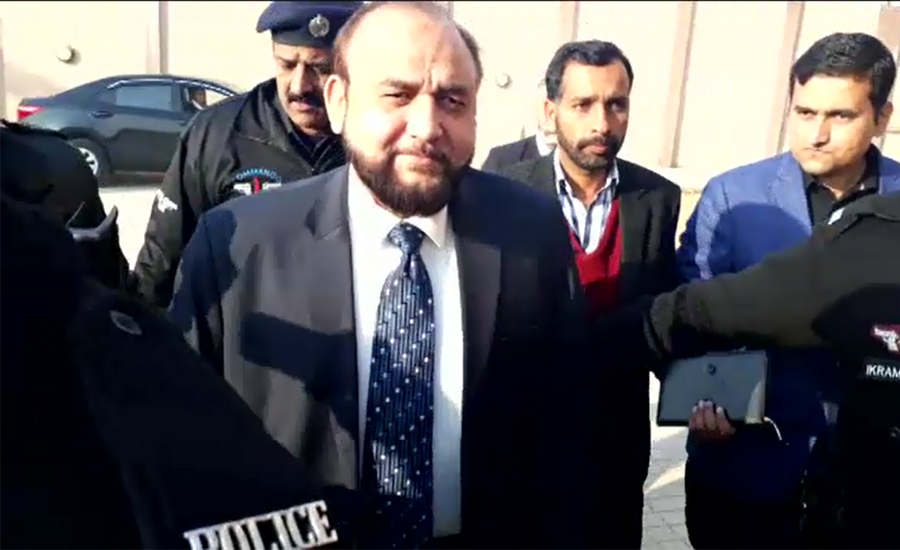Assets Reference: JIT head records statement against Ishaq Dar

ISLAMABAD (92 News) – Wajid Zia, the head of the Joint Investigative Team (JIT) formed by the Supreme Court to probe into Panagamate scandal, on Monday appeared before the accountability court (AC).
The AC judge Judge Mohammad Bashir resumed hearing of the reference filed against Ishaq Dar for having assets beyond known means.
During the proceedings, Wajid Zia, who was the key witness of the prosecution, submitted volume one and nine of the original Panama case JIT report and recorded his statement.
He told the court that according to 1992 wealth statement, Ishaq Dar had assets worth Rs9.1 million and according to 2008-09 statement he had assets worth Rs831.6 million.
The JIT head said that Ishaq Dar failed to prove the growth in his assets before the JIT.
Zia added that former minister gave 4.9 million British pound debt to his son in 2008 but neither he mention the name of his nor he confirmed the source.
He also confirmed his signature on the JIT report before the judge.
The court later adjourned the hearing until February 14.
Earlier, the charges against Dar followed an investigation into the finances of former prime minister Nawaz Sharif, who was ousted in July after the Supreme Court disqualified him for not declaring salary from his son’s off-shore company.
The finance minister is one of Sharif’s closest political allies and Dar’s son has married Sharif’s daughter. Both men deny any wrongdoing.
Dar had resigned from his post amid his legal woes and a worsening economic outlook for Pakistan, which is battling to stave off a balance of payments crisis due to dwindling foreign currency reserve and a widening current account deficit.
He was initially lauded for steering Pakistan out of a balance of payments crisis in 2013 and returning the nuclear-armed country towards a higher growth trajectory.
But over the past year, he has faced criticism for his refusal to allow the rupee to weaken to ease macroeconomic pressures. He has also been accused of eroding the central bank’s independence.







